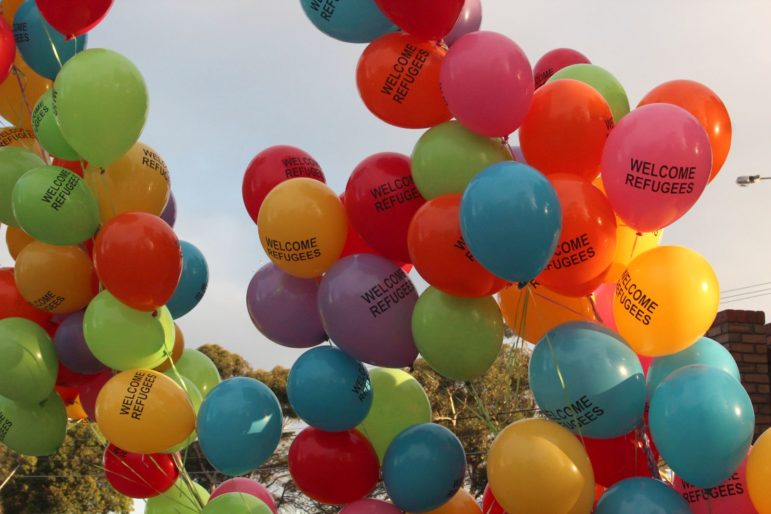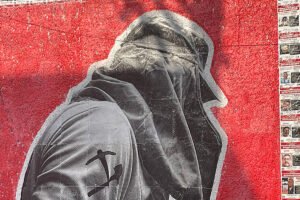
June 20, 2016, NPR
On World Refugee Day 2016, observed on June 20th each year, the White House issued this statement, and the UN High Commissioner for Refugees (UNHCR) released this annual report declaring that the number of displaced people is now at its highest ever, even surpassing the number of people displaced by WWII.
By the end of 2015, 65.3 million individuals, more than half of them children, were “forcibly displaced worldwide as a result of persecution, conflict, generalized violence, or human rights violations.” This number represents one out of every 113 people, or a little less than one percent of the earth’s population.
Three countries—Syria, Afghanistan and Somalia—accounted for more than half of the refugees under the UN’s mandate. And most of those refugees, 86 percent, are hosted in developing countries. Lebanon hosts 183 refugees for every 1,000 inhabitants, the highest ratio in the world, while Turkey hosts the highest total number of refugees—2.5 million people.
UNHCR reports “on average 24 people worldwide were displaced from their homes every minute of every day during 2015, some 34,000 people per day.”
This represents a level of risk for which the world’s nations know no precedent and have no common strategic vision to address it. It took the viral image of a drowned Syrian child to compel world leaders to begin to reckon with their legal and moral responsibilities, let alone to fully appreciate the scale of the growing crisis.
The UNHCR report indicates that there are three reasons why forced displacement is continually rising. The situations causing refugee outflows are lasting longer. (The conflicts in Somalia and Afghanistan are in their third and fourth decades, respectively.) New or reignited crisis situations are occurring more frequently. While the number of refugees and internally displaced people increased from six people per minute in 2005 to 24 per minute today, the rate at which the world’s nations are finding and offering solutions has been falling since the end of the Cold War.
World Refugee Day is meant to honor the courage of people displaced worldwide and recognize the contributions they make in their communities wherever they may be. UNHCR has this hashtag and video to promote awareness: “We Stand #WithRefugees 2016—Please Stand With Us.”
Sign up for our free newsletters
Subscribe to NPQ's newsletters to have our top stories delivered directly to your inbox.
By signing up, you agree to our privacy policy and terms of use, and to receive messages from NPQ and our partners.
Amnesty International and the International Rescue Committee (IRC), among others, observe this day as well with their individual campaigns.
In a statement, Filippo Grandi, the UN High Commissioner for Refugees, said this about the refugee crisis:
Each year, UNHCR seeks to find a glimmer of hope in the global statistics we publish to show that the world is finding solutions to help heal the trauma refugees are living through on a daily basis. But this year the hopeful signs are hard to find. […] Against this tragic backdrop, divisive political rhetoric on asylum and migration issues, and disturbing levels of xenophobia, are together threatening the international agreements that protect those forced to flee war or persecution. Instead of burden sharing, we see borders closing; instead of political will there is political paralysis. And humanitarian organizations like mine are left to deal with the consequences, while at the same time struggling to save lives on limited budgets.
NPQ has written forcefully many times about the global refugee crisis, such as here and here. As a word of encouragement or warning, here is the conclusion to another NPQ report:
This is yet another of those issues that nonprofits might hope to dodge as “not their issue,” someone else’s concern and priority, but it’s not. If the U.S. slams the door on desperate Syrian refugees, the nonprofit sector that claims to represent openness, inclusion, and democracy will find its credibility seriously damaged should it fail to do whatever it can to confront the politicians using fear and hatred as a tool for political advancement.
—James Schaffer











